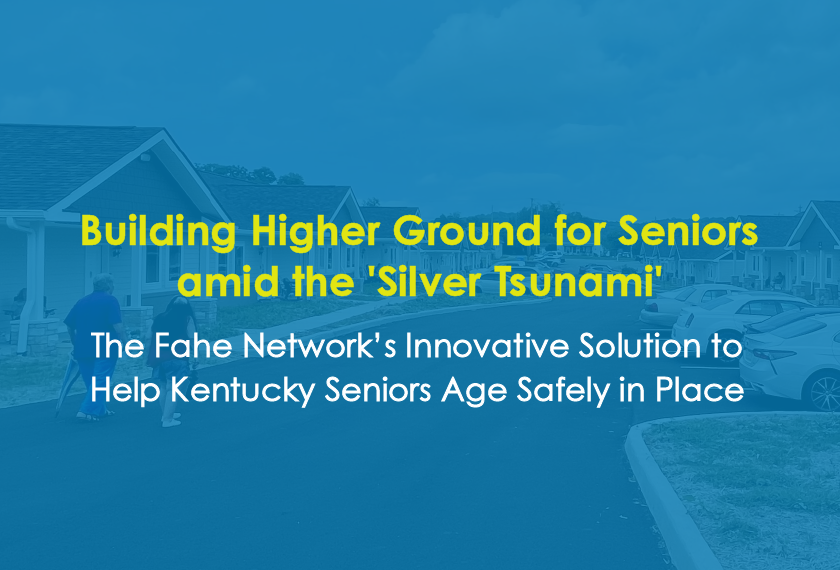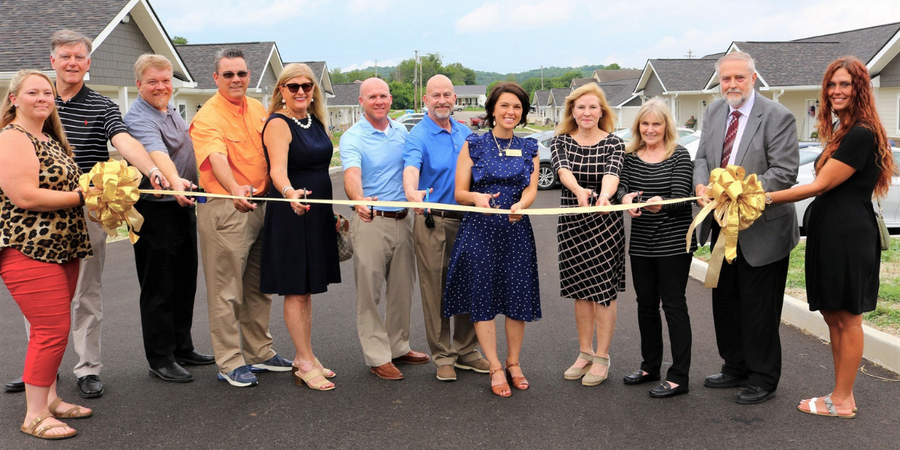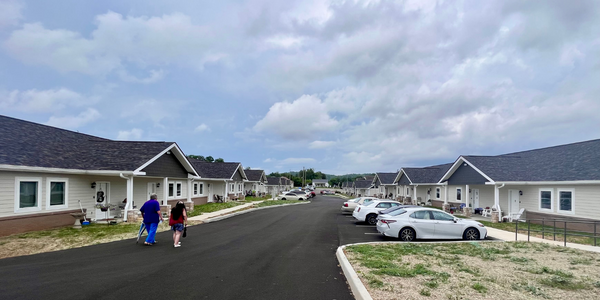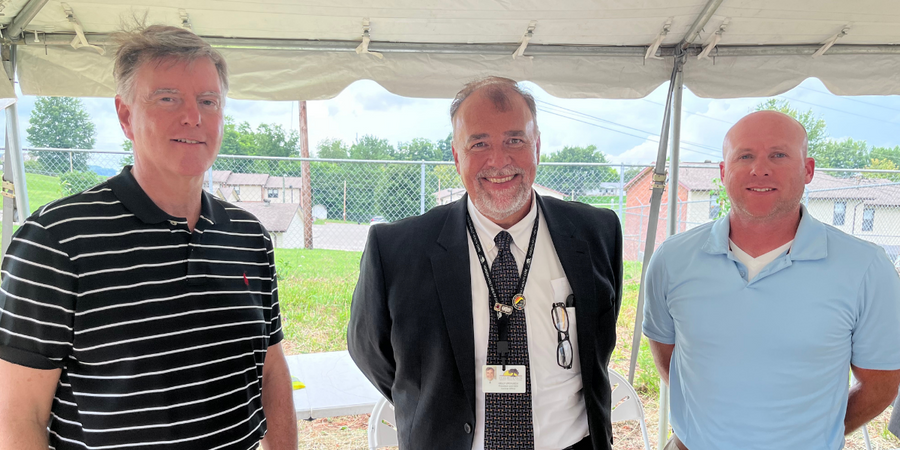
Building Higher Ground for Seniors amid the ‘Silver Tsunami’
The Fahe Network’s Innovative Solution to Help Kentucky Seniors Age Safely in Place
As workforce relocations and economic realignments emerge from the pandemic, homeowners and renters are suddenly grappling with widespread shortages in local housing inventory and affordability gaps for both working families and senior residents alike. Contractions in the labor market and lingering supply chain disruptions have brought homebuilding costs to near-record highs, and many home-seekers facing housing insecurity struggle to find safe, quality housing that they can afford. For Appalachia and across the country, the tightening housing market can weigh particularly heavily on seniors and aging residents, many of whom live on fixed retirement incomes and may require costly mobility accommodations at home.
Observing the scant housing opportunities for seniors as far back as 2016, Fahe Member Kentucky Highlands Investment Corporation (KHIC) and its housing subsidiary Highlands Housing embarked on an ambitious project for its neighbors in Wayne County, KY. Partnering with Kelly Upchurch, CEO of the regional senior living and care services provider Horizon Adult Healthcare, the concept called for the construction of a sprawling development of single-story apartments for seniors. The units would be designed for mobility-friendliness and financial accessibility and would even offer on-site health and assisted living care for residents.
In order to bring the necessary capital to fund the project, KHIC and Highlands Housing submitted an initial Low Income Housing Tax Credit application in 2016. While the initial application was not approved, KHIC persisted, and with support from a partial land donation from Horizon, the addition of Section VIII housing voucher revenue, and construction loan financing through Fahe’s Community Lending division, the LIHTC application was eventually approved in 2020. Aided by the project expertise of Fahe’s Strategic Programs team, Highlands Housing and Horizon acquired the resources to meet the project’s roughly $7 million price tag and initiated the long-awaited construction development.
Dubbed the Cumberland Horizon Village, the project sought to provide 32 new housing units that would be both affordable for lower and fixed-income residents and offer accessibility features like single-story floorplans. The apartments would serve senior and elderly individuals aged 55 and older in the Monticello area of Wayne County, KY and it would be built in close proximity to Horizon’s local adult day facility to offer care services for occupants. This close proximity to the Horizon facility would also help give residents the peace-of-mind to safely and comfortably age in the community they call home.
Perhaps most importantly for the community, the new Cumberland Horizon Village aims to address the housing challenges associated with what has come to be referred to as the “Silver Tsunami.” The term alludes to the 73 million adults belonging to the Baby Boomer generation who cross the 65-year retirement age threshold at an estimated rate of 10,000 people per day. This large-scale demographic wave has already placed noticeable strains on the healthcare and senior services industries across the country. In Kentucky, for instance, there are currently only 28,737 nursing facility beds, well short of the demand generated by the roughly 771,000 seniors currently living in the state.
The extensive demographic fluctuation not only produces medical capacity challenges and generational ripple-effects, but economic ones, too. Upchurch estimates that as of 2015-2019, 11% of seniors aged 65 or older in Kentucky are living below the poverty line. In the Appalachian region as a whole, seniors make up 20% of the overall population, with 9.3% of those seniors living in poverty-level conditions.
When aging residents find themselves unable to safely remain in their homes, transitioning to a long-term care facility often means being displaced from their community, which can subsequently decrease their quality of life. Research has found that aging in place can actually help maintain a healthy standard of living and even improve health outcomes for seniors. “Adults want to remain healthy and independent during their senior years, but traditional long-term care often diminishes seniors’ independence and quality of life,” according to Marilyn Rantz, professor at the Sinclair School of Nursing. “Aging in Place enables most older adults to remain in the same environment and receive supportive health services as needed. With this type of care, most people wouldn’t need to relocate to nursing homes.”

It was to the Monticello community’s excitement, then, when on July 25th, 2022, the Cumberland Horizon Village project finally marked its successful completion with a ribbon-cutting ceremony. Attendees of the ribbon cutting included Fahe staff members who assisted in the project, KHIC CEO Jerry Rickett, Highlands Housing CEO Gordon Kidd, Horizon Adult Healthcare CEO Kelly Upchurch, representatives from Kentucky Housing Corporation and Ohio Capital Corporation for Housing, and numerous local and state elected officials. Receiving special commemoration was the late Blake Enlow, Highland Housing’s past CEO who had long championed the project before his tragic passing in 2019. The project site includes a small side road that has been named “Enlow Way.”
The vision for Cumberland Horizon Village is to provide a place where seniors can safely age in comfortable and affordable living accommodations that can better support their evolving mobility and medical needs. By building the units directly behind the Horizon Adult Day facility, the project not only helped alleviate the housing supply crunch for local seniors, but also reduced the need for lengthy commutes for routine medical services and the prohibitive costs for typical at-home skilled care. With this innovate project, the Fahe Network helped convene the right stakeholders and facilitated the appropriate mix of private capital and publicly-supported financing to ensure that growing older won’t mean growing apart from these seniors’ American Dream.




